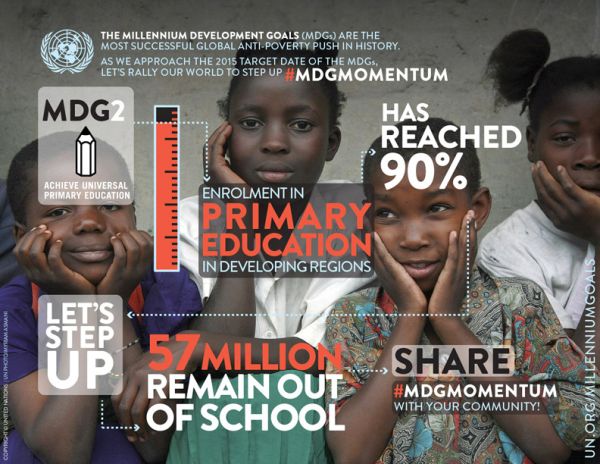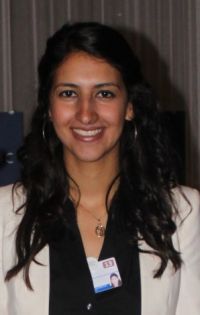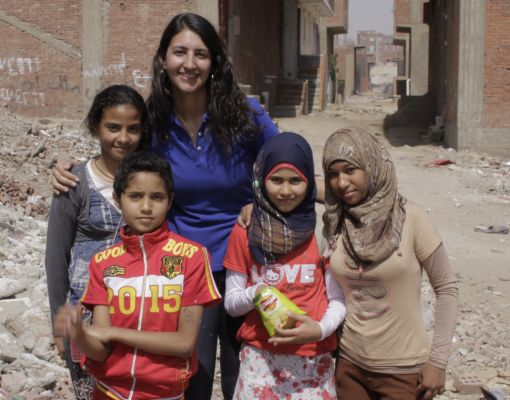Goal 2: Achieve universal primary education
With expertise gleaned from both professional experience and their studies in Germany, DAAD scholarship holders talk about the eight UN Millennium Development Goals. Yasmin Helal is championing education in her home country of Egypt.
More than just a grade
In 2010, Yasmin Helal gave up her career as a biomedical engineer and founded “Educate-Me”, a non-governmental organisation with the goal of improving primary education in Egypt. To help deepen the impact of her work, Yasmin Helal is currently enrolled in the International Education Management programme at the PH Ludwigsburg University of Education.
According to the second Millennium Development Goal, all children should be able to complete a full course of primary schooling. Why is primary education so important?
Until now we’ve tried to solve the world’s problems from afar – we fight for environmental protection and better work conditions in the garment industry. What we really need to be doing, however, is capacity building – empowering the local people to develop their own strategies and solutions. People need a basic education to be able to do this.
Why have you chosen education as your cause?
It was an encounter that opened my eyes to the terrible state of the Egyptian educational system. One day a man asked me for money, telling me he needed it for tuition so he could send his daughter to school. Not believing this could be true, I asked him to take me to the school and low and behold: The secretary confirmed his story, telling me his daughter was no longer allowed to attend school for financial reasons.
It became clear right then and there what I wanted to do – to help the local community and improve schools. Ensuring educational opportunity for our children was suddenly more important to me than my professional career. So I started focusing all of my efforts on improving the quality of education.
Why is it that in some countries, primary schooling is not guaranteed?
The reasons are different for each country. The Egyptian government does invest in education, but the schools are not well equipped and classes are far to big, with 60 to 100 pupils in each class! Classroom teaching is limited to giving information. If you ask the children why they go to school, they will tell you that their one single goal is to get their hands on a leaving certificate. School should get them thinking about their personal goals and about what they wish to achieve in life.
Many of the teachers do not teach their pupils anything. In order to pass tests, pupils must actually pay their teachers for private tutoring. In the end, the kids still learn very little while the teachers pad their incomes.
How can you improve the quality of primary education?
Teaching controls and evaluations give a good picture of what is happening in the classrooms. If the government is not in a position to ensure the quality of primary education, it needs to turn to an organisation that specialises in the area. Standards need to be established, which would then allow NGOs and community centres to offer equitable educational programmes. This would be one way to provide schooling for those children who have difficulties in the conventional education system.
What does Educate-Me do?
I want to teach young people to think independently and help them develop into confident, self-assured individuals. Educate-Me provides early education and after-school care for kids. At Educate-Me children can learn languages, do sports or improve their computer skills. We also offer literacy courses for adults, hygiene training and opportunities for parents to work at our centres. We also provide financial support for children so that they can attend public school.
How has Educate-Me been accepted within the community, i.e. among children and parents?
Response has been great. Our programmes currently support 150 children and 20 adults. And there are more than 450 kids on our waiting list. Some children come five days a week and stay long after class has ended in order to study. Some have even come up with their own fundraising ideas to help us buy the space that we currently rent. They want to make Educate-Me a lasting institution and hope that someday they will be the ones heading up the centre.
More information on the first UN Millennium Development Goal is available here
Click here to learn more about the organisation Educate-ME!








